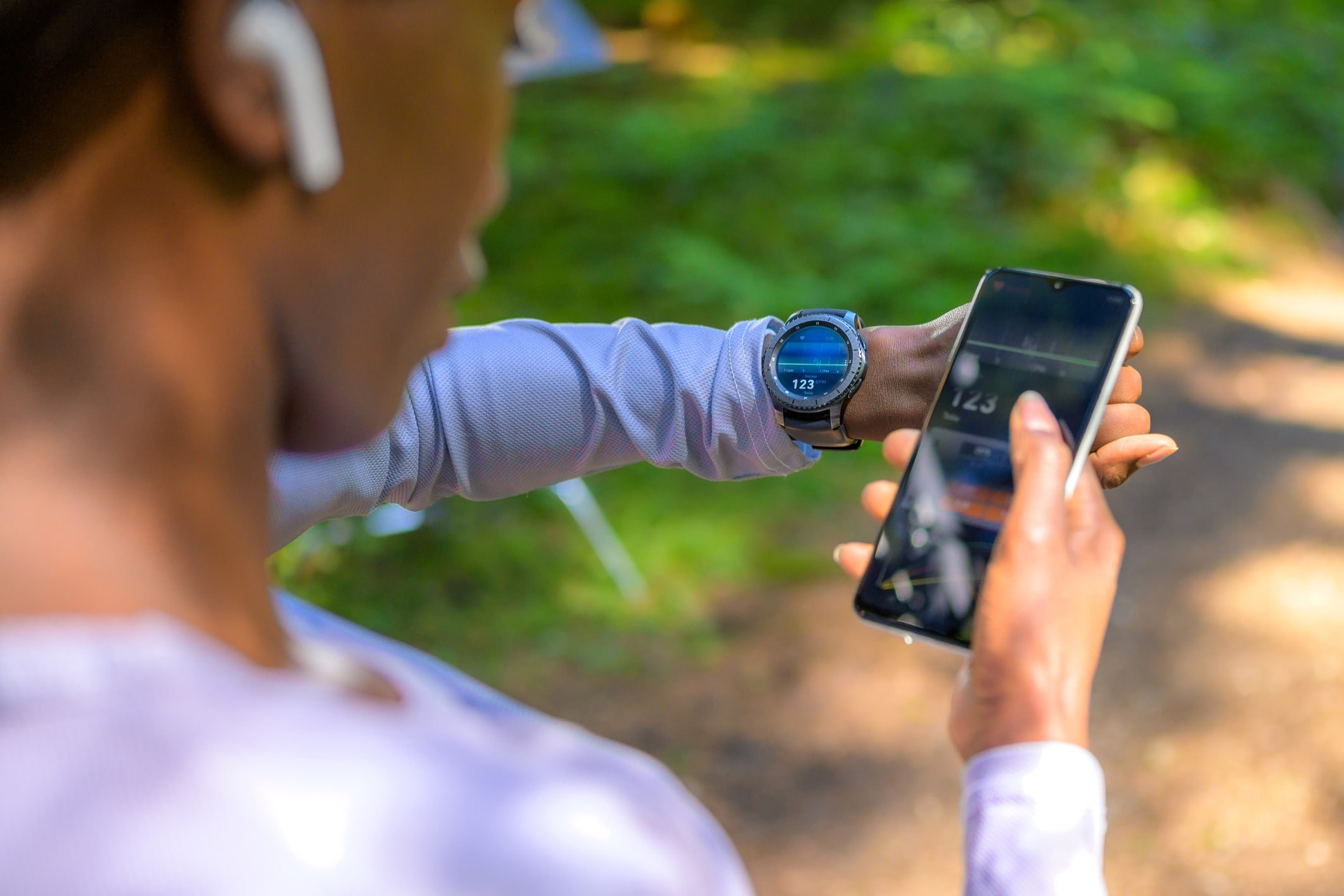 With a new year comes new healthcare trends — you know how it goes. The upcoming year is expected to bring a new era for healthcare with several transformative trends on the horizon. To help you prepare for what’s to come, we’ve outlined the top healthcare trends 2024 impacting travel nurses and allied professionals.
With a new year comes new healthcare trends — you know how it goes. The upcoming year is expected to bring a new era for healthcare with several transformative trends on the horizon. To help you prepare for what’s to come, we’ve outlined the top healthcare trends 2024 impacting travel nurses and allied professionals.
- Generative artificial intelligence (AI)
- Wearable technology
- Telehealth services
- Personalized medicine
- Virtual healthcare assistants
- Preventative healthcare
- 3D printing
- Mental health + physical health integrated care
8 Trends Affecting Travel Nurses and Allied Professionals in 2024
1. Generative AI
Heard of artificial intelligence? We’re taking it up a notch with generative AI, or genAI. GenAI is a cutting-edge technology that produces new information based on the data it’s been trained on and already knows. And it’s expected to have a major influence in the healthcare industry.
Related: Artificial Intelligence in the Future of Healthcare
For example, health care organizations and health systems may use generative artificial intelligence to synthesize patient data to predict health outcomes, recommend optimal treatments, and streamline medical notetaking. As an added bonus, genAI can aid in planning and logistics, making the process smoother for you as a healthcare professional. By identifying diseases earlier, optimizing treatments, and simplifying health processes, genAI is making healthcare more effective and accessible to patients across the globe.
2. Wearable technology
Raise your hand if you’re one of the 224 million people in the world with a smart watch. 🙋 While smart watches may be one of the most popular examples of wearable technology, they’re far from the only type of wearable. From fitness trackers to continuous glucose monitoring devices, this trend is redefining the scope of healthcare.
Encompassing a wide range of electronic devices, wearables are designed to be worn close to, or on the surface of, the skin. That way, they can track an array of health-related statistics, from simple metrics like steps taken and heart rate, to more complex data such as sleep patterns, blood glucose levels, and even electrocardiogram readings.
The impact this type of technology has on healthcare is significant. By providing a continuous stream of data, wearables are giving patients, primary care physicians, travel nurses, and allied professionals unprecedented insights into personal health. This can lead to earlier detection of potential health issues, more personalized care plans, and ultimately, better health outcomes.

3. Telehealth services
In the height of the coronavirus (COVID-19) pandemic, we saw a shift toward telehealth services in healthcare. Even as COVID-19 declined, telehealth services continued to revolutionize the delivery of medical services and information through telecommunication technologies. And it shows no signs of stopping.
Telehealth services allow patients to connect with their primary care physicians and other health professionals via video call instead of in person. This means that healthcare is becoming more accessible and convenient, particularly for those in remote areas or who have difficulty traveling. And as we saw during COVID-19, telehealth appointments provide a safer alternative to care by preventing the spread of infectious diseases.
For you as a travel nurse or allied professional, telehealth services empower you to broaden your reach to make your care more accessible and efficient. This not only reduces costs and saves time but also offers you additional flexibility to balance your personal life with work.
4. Personalized medicine
In the past, there’s been a one-size-fits-all approach to healthcare and medicine. But now that’s changing with personalized medicine, otherwise known as precision medicine.
Personalized health is a model of care that focuses on an individual’s unique health needs and medical history. By integrating data from various sources such as genomic information, environmental factors, lifestyle habits, and existing health conditions, healthcare providers like you can create a personalized health plan that’s more precise and beneficial.
“Much of the precision medicine research happening today centers are targeted therapies, which work by homing in on a specific target — often a genetic variation — that only a select subset of patients carries,” said Troy Sarich, Ph.D. and Chief Commercial Data Science Officer at the Janssen Pharmaceutical Companies of Johnson & Johnson. “It’s an exciting step forward for healthcare.”
From what we’ve already seen with personalized medicine, we know that this approach leads to improved diagnoses, targeted treatments, and a heightened patient experience. Personalized healthcare is shaping the future of patient care, where prevention, prediction, and personalization play a key role.
5. Virtual healthcare assistants
As a patient, it can be a pain to schedule appointments. And as a travel nurse, allied professional, or health provider, it can be a headache to organize your schedule and find time to respond to inquiries. That’s where virtual healthcare assistants come in handy.
Virtual healthcare assistants, or digital health assistants, are making lives easier for both patients and providers. These AI-powered platforms are designed to interact with patients, provide medical information, set appointments, and even offer health advice.
With virtual assistance, you can automate routine tasks and free up valuable time to focus on more complex patient care tasks. Plus, these digital helpers offer patients 24/7 access to healthcare services, improving patient engagement and potentially leading to better health outcomes.
6. Preventative healthcare
Traditionally, the main times we seek medical help is when we’re sick or injured. But preventative healthcare is testing the status quo by encouraging individuals to engage in measures to prevent diseases or injuries, rather than curing them or treating their symptoms when they appear. Think: routine check-ups, screenings, and vaccines that help detect potential health issues early or prevent them entirely.
By prioritizing prevention as a provider, you can identify and address health issues of your patients before they become serious. Thanks to preventative healthcare, you’re saving even more lives.
7. 3D printing
Remember when 3D printing was simply a vision for the future? Well, we’re officially living in the future because 3D printing is here and it’s here to stay. Also known as additive manufacturing, 3D printing is at the top of relevant healthcare trends.
Creating unprecedented possibilities for patient treatment, 3D printing involves creating three-dimensional solid objects from a digital model by successively adding material layer by layer. In healthcare, 3D printing is used for a variety of applications ranging from the production of custom prosthetics to the creation of patient-specific surgical models. These models are a precise replica of a patient’s anatomy, allowing surgeons to plan and rehearse difficult procedures, improving surgical outcomes and patient safety.
Even better, the possibility of 3D printing to produce customized implants and print human tissue could radically change treatment options and patient care in the future. As such, you can expect 3D printing to profoundly impact the healthcare industry, driving innovation and improving patient outcomes.
.jpg?width=2121&height=1414&name=GettyImages-1295144917-min%20(1).jpg)
8. Mental health + physical health integrated care
For many years, mental health and physical health were thought to be two different things. However, throughout the years, our understanding of the intimate connection between mental and physical health has drastically deepened and we’ve learned that they’re not separate entities but rather two faces of the same coin, influencing and reflecting each other.
Related: 4 Ways Healthcare Professionals Can Boost Mental Health Resilience
Instead of treating physical and mental health in isolation, there is a growing emphasis on integrated care. This approach acknowledges the interplay between the body and mind and aims to treat patients as a whole. Health systems and health care organizations like clinics and hospitals are incorporating mental health professionals into their teams and making mental health screenings and treatments more accessible for patients.
You may be wondering how this new level of care affects you as a travel nurse or allied traveler. Most importantly, this holistic approach to health enables you to offer comprehensive care, addressing all aspects of your patients’ wellbeing and identifying interconnected health issues more efficiently.
Staying in the know of healthcare trends isn’t just beneficial for travel nurses and allied health professionals like you — it’s essential. In the dynamic field of healthcare, being familiar with the latest trends and changes allows you to do what you do best: provide the highest quality care to your patients, regardless of where your travel job takes you.





